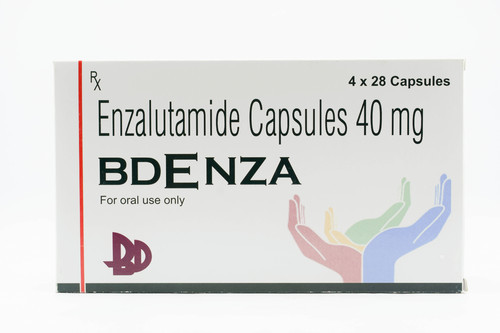Prostate cancer is a prevalent form of cancer that affects the prostate gland, situated just below the bladder in men. With an estimated one in eight men facing a prostate cancer diagnosis in their lifetime, it is vital to comprehend this condition and its potential impact.
Various Types and Severity of Prostate Cancer:
Prostate cancer can exhibit different types and varying degrees of severity. While some forms of prostate cancer progress slowly and may not necessitate immediate treatment, others can be aggressive, demanding prompt medical attention. Additionally, prostate cancer can metastasize to other body parts, such as the bones and lymph nodes, further underscoring the need for vigilance.
Symptoms and Diagnosis:
In the early stages, prostate cancer may not present noticeable symptoms. As the cancer advances, the following signs may manifest:
- Difficulty urinating
- Weak urine flow
- Blood in the urine or semen
- Erectile dysfunction
Should any of these symptoms arise, it is essential to consult a doctor. A prostate-specific antigen (PSA) test may be recommended, measuring the level of PSA in the blood. Elevated PSA levels can suggest prostate cancer, but they may also be caused by other conditions, such as an enlarged prostate.
Treatment Options for Prostate Cancer:
The treatment approach for prostate cancer encompasses several strategies:
- Watchful waiting or active surveillance: This involves regular monitoring of the cancer’s progression through check-ups and tests, with treatment only pursued if the cancer grows or causes symptoms. This method is often suitable for slow-growing prostate cancer that remains asymptomatic.
- Surgery: Surgical removal of the prostate gland is a common recommendation for younger men or those with aggressive prostate cancer.
- Hormone therapy: This treatment entails reducing male hormone levels in the body, slowing the growth of prostate cancer. It is often used alongside radiation therapy for advanced prostate cancer.
The selection of treatment depends on factors such as the cancer type and severity, the individual’s overall health, and personal preferences. Doctors can assist in determining the most suitable course of action.
Coping with a Prostate Cancer Diagnosis:
A prostate cancer diagnosis can be emotionally overwhelming. Taking care of oneself and seeking support are crucial during this challenging time. Consider these coping strategies:
- Educate yourself: Empower yourself with knowledge about prostate cancer and available treatment options. Understanding your condition can provide a sense of control.
- Communicate with healthcare providers: Openly communicate your concerns and treatment goals to healthcare providers, and don’t hesitate to ask questions.
- Seek support: Reach out to family, friends, or support groups for emotional assistance. Many cancer centers offer support groups for prostate cancer patients and their families.
- Prioritize physical health: Maintain a healthy diet, engage in regular exercise, and ensure sufficient rest to enhance overall well-being and manage physical symptoms related to prostate cancer.
Medicines can also help in the process of killing the cancer cells. You can buy the anti-cancer drug online. Bdenza 40mg is used to treat white blood cell cancer and in patients with transfusion dependent anemia.It contains Enzalutamide (40mg). It helps the immune system to fight against the cancer cells.This medicine is supplied online by Melon GlobalCare. Melon GlobalCare is a well-established healthcare brand and one of the world’s upcoming distributors in the pharmaceutical industry. They offer the finest Medical Facilities and provide the highest quality medications at reasonable prices.
You can buy it using the link below: Bdenza exporter in India.
https://www.melonglobalcare.com/product/enzalutamide-bdenza-capsules-third-party-manufacturer-india












